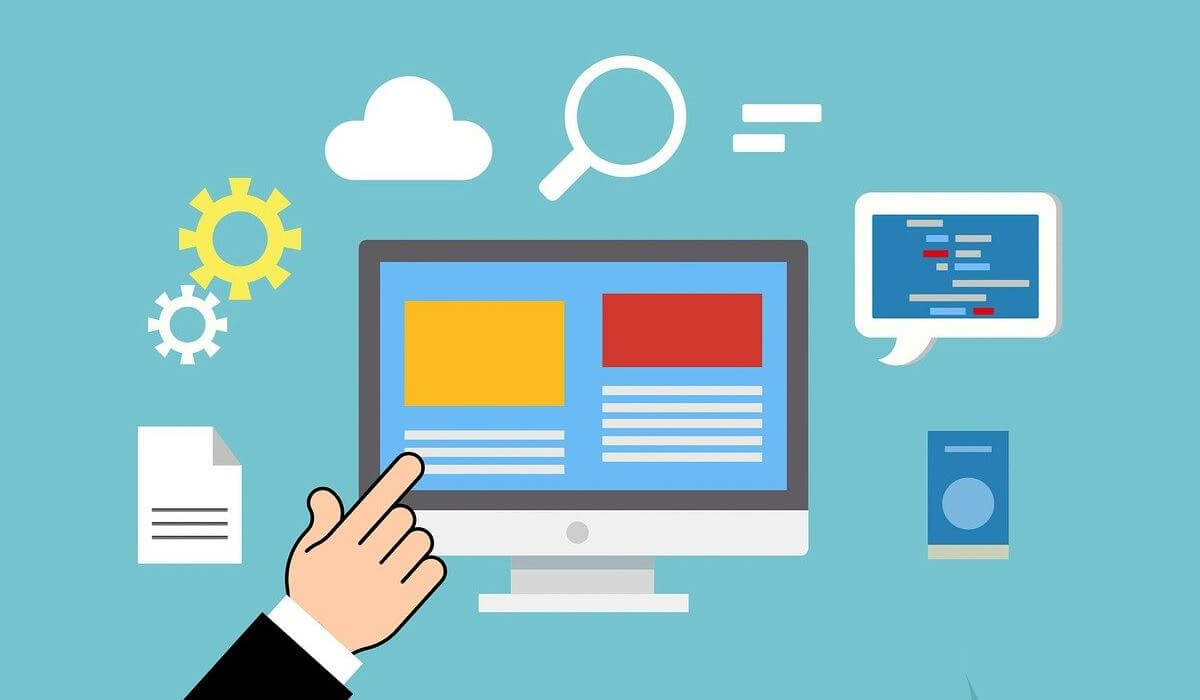Software & Ecommerce Project Management: a Mix You Can’t Miss Out On
Written by
Editorial TeamPublished on

May this year, Ecommerce News Europe published a study showing that 57% of Europeans “shop online more than ever” and that “about one in three Europeans (30 percent) are spending more money on virtual experiences.”
With how 2020 has been going so far, it comes as no surprise. A major factor in this significant chatnge was – obviously – the Covid-19 pandemic.
Even with the lockdowns steadily being lifted in some countries, customers around Europe still do their best to minimize potential risks of being in contact with strangers.
This, of course, affects the German ecommerce as well. While the entire Europe notices more people buying online, Germany doesn’t fall behind with increase in online spendings.
In fact, as per eMarketer’s research, we can expect German ecommerce sales to rise by 16.2% this year, which equals to 82 billion euro. To give you a better picture, in 2019, it was nearly 71 billion euro according to eMarketer.
This translates to an increase in sales and volume of operations within ecommerce companies.
With that comes the question: how can you improve your ecommerce business efficiency to match the situation?
One of the answers is: by discovering ecommerce task management software.
In the post below, we’ll run you through everything you need to know about this topic, including:
- main challenges of the ecommerce project management
- benefits of investing in technology
- types of software to consider
Let’s get straight to it.
Project Management In Germany Now

While it’s hard to pull ecommerce out of the bigger economical picture, one thing is clear: Germans like to manage their projects the right way, regardless of the industry.
Adrian Neumeyer, founder of Tactical Project Manager summarized it this way:
“Engineers love structure and systems (especially we Germans do). It is no surprise that also projects are managed in a very systematic way.”
This tendency, however, seems to go far beyond the engineering spectrum. Already in 2017, we could notice an over 6% year-over-year increase in revenue of the project management consultancy market.
This can only be explained in one way: Germans understand the importance of managing their projects efficiently and aim to improve it.
It seems they are after software to support them in their efforts as well, however they are not picky about it.
According to research from Statista, “project management software Jira accounted for approximately 46.3 percent of the project management software market in Germany”.
That’s a significant dominance over the market so filled with a variety of solutions.
Main Challenges of Ecommerce Project Management

Before you can start thinking of solutions, you need to understand your problems.
If you still struggle with defining them, here are some of the main ecommerce project management challenges that you too might be facing.
Underestimating the Difference
Ecommerce is nothing like selling offline. Even though the principle is the same – make money through selling goods – everything else is different from an offline trade.
You, as an ecommerce business owner or a project manager of such, need to understand it. You can’t organise the work of an online store the same way you’d organise it in a physical store visited by customers.
Here are a few differences to consider (and each of them can affect your approach to ecommerce project management):
- Ecommerce relies on technology to guide the buyer through the process; it stands in complete opposition to a vendor physically present during offline trade
- Your online store’s geographical reach is potentially wider; this can affect your customer targeting
- While some of the offline shops may have little to no marketing specialists employed, each online store needs a dedicated marketing team to actively promote the business
- Thanks to technology, online stores have easier access to automatically generated insights and data about their business health; that’s vital information and you can use it to steer your business’s growth
When planning projects for your ecommerce business, do you even think about these vital differences?
If you haven’t so far, now’s the time to start.
Lack of Workflow and/or Organized Processes
Due to its specific nature, ecommerce companies need well-structured and optimized processes that keep the companies running smoothly. Stabilized workflows that help you deal with your recurring projects are also an important element of the ecommerce project management puzzle.
Meanwhile, numerous online stores – especially the smaller ones – jump at projects without any preparation. They have no plan in place and show no structured approach to the problems a given project comes with.
Let’s name just a few issues with this approach: increased project failure rate; increased costs; inappropriate budgeting; wasting time on things that don’t matter for your business.
And that’s just the beginning of the list.
Luckily enough, the right tools support workflow creation. We’ll get to them in a moment.
Disconnected Departments
Marketing, sales, customer support, logistics and other departments can only benefit when brought together.
The bigger your ecommerce business, the bigger the chance you’ll have independently working departments that manage different aspects of your company.
That easily leads to these departments disconnecting from one another while they should be working in tandem.
This can become quite a challenge when people who hardly ever work together suddenly need to start communicating and compromising on working patterns they’re used to. It’s a tough nut to crack.
Technology is one of the solutions to this problem.
Imprecise Estimates Coming From Lack of Data
Project planning is related to budgeting and cost planning. The same goes for ecommerce project management.
Sometimes, however, teams end up skipping the vital process of planning and analysing their project related data. That leads to all manner of imprecise estimates regarding resources at their disposal.
Meanwhile the ecommerce businesses have vast access to reasonably priced tools that support their project planning AND provide them with data adequate for success. They can, alternatively, benefit from the help of an IT services provider.
With their help, you don’t have to estimate deadlines or costs blindly. Instead, you can do it with full awareness of all important factors.
Key Benefits Of Using Software For Ecommerce Project Management
With the challenges covered, let’s talk about the benefits of getting friendly with the most recent technology used for ecommerce project management.
Reason #1: It Assists You in Creating and Stabilizing Workflows and Processes
If lack of structured processes is one of your biggest challenges, here’s the good news: the right tools make it easy to set up and optimize workflows in your team.
Here’s why:
When you use tools for your ecommerce project management or other software for marketers, some things happen on their own. A given app can complete tasks that you’d have to otherwise do manually.
From reminders to auto-recurring tasks to report generation, some chores complete themselves without your interference.
And when something happens on its own, it’s so much easier to keep it as an element in your workflow, isn’t it?
Let’s not forget visualization. Processes are easier to stick to when you can visualize them. For example, with a kanban board, you can easily create a path for your team to follow.
And when in doubt, one glance at your kanban board or workflow system will quickly bring you back right on track. And that’s just one of the benefits of Kanban for project management.
Reason #2: It Equips You With Data
The longer the longer you are on the market, the more data about your business you have. You just probably don’t collect it.
Which sometimes comes as no wonder. After all, manual data collection is tiresome. And when you’re fresh and growing, calculating this or that manually seems like a huge waste of time.
With the right software, you’ve got no excuses for not looking at your business data because you get it ready to use. A given type of software can collect and organize all the data for you.
This information can be groundbreaking not only for your ecommerce project management, but also for your business in general.
Use this data to plan the future and make correct estimates, spot weak points of your company and opportunities that you can tap into.
Reason #3: It Creates a Workspace You Didn’t Previously Have
If you work in an office, approaching someone at their desk and asking about their tasks seems like the most logical thing to do.
When you work remotely, you’ll probably call them instead.
What if you could still create a shared digital workspace for your team? One that will visualize the progress on the project, store and distribute tasks and limit the number of questions that you need to ask?
Believe us when we tell you: you’re going to like it. Especially when your team is suddenly thrown into a remote work mode, a shared virtual workspace is a life-saver.
Reason #4: It Clarifies Communication
Imagine you could cut out the noise from your ecommerce project management.
Imagine you no longer need to ask questions like “how are things going?”, because the moment you check your digital workspace, you know exactly what’s the situation.
But there’s more: imagine that a majority of doubts and questions also disappear because you use software to create clear, easy to follow and visualized workflows.
No one asks when it’s their time to step in because the answer is in the process structure itself.
Sounds good, doesn’t it?
Reason #5: It Encourages Ownership
Workflows that are easier to manage encourage taking their ownership by the members of your team.
If it’s clear what happens when, it’s simple to distribute responsibility for a process of a stage among specific people.
This way, when you need to ask questions, you ask the process owner instead of sending them into your team’s vague direction.
Reason #6: It Allows You Stop Problems Right Away
When you’ve got no visual representation of the process, it’s easy to miss issues.
Running late and struggling to meet deadlines? Constantly having to chase your team to deliver? It may be time to visualize your workflow to see where things get stuck and address the issues ASAP.
Without software for ecommerce project management, you’re likely to consider issues only when they’re brought up during a meeting or whenever a situation gets bad.
Meanwhile, if you monitor project completion in your digital workspace, you’re able to address the issues right away as they arise and avoid them in the future.
And that covers six main benefits of supporting your ecommerce project management with software. Feel convinced yet?
If so, let’s talk about real examples of software that you can use.
5 Types of Software to Use for Ecommerce Project Management
Project Management Tools
Being the very core of ecommerce project management, task distribution tools allow you to allocate assignments to your team members. But there’s much more to it.
Depending on what kind of tool you use, you’ll gain access to features that allow task distribution, project monitoring or even time tracking.
Using these kinds of features gives you incredible insight into how you work and what you can do to improve your productivity.
Not to mention – this type of tool is a must when time tracking for teams and task distribution, etc., if they work remotely.
Communication Software

You can communicate through your ecommerce project management tools but it’s always good to have an alternative communication channel. One that isn’t email, in any case.
Common are chat rooms that you can host in the cloud or on the premise. Video conferencing software is another popular type of software that people use to make up for the distance between them.
File Sharing Software
File sharing software allows you to upload files directly into the cloud or transfer files directly to the destination. Probably the most common file sharing platform is Google’s G Suite, but that’s not the only option out there.
Time Tracking and Billing Software
Time tracking and billing software allows you to monitor how long you actually work on the tasks and then, analyze whether these numbers are up to your expectations. It’s also useful when you work with contractors and freelancers paid per hour. A solid free timesheet app can help you do that, and more.
CRM
CRM stands for customer relationship management and it’s a crucial part for ecommerce businesses. Seeing as customers are an indispensable part of your business, including their management in your ecommerce projects won’t be a rare occurrence.
With help of CRM software you can discover where your clients are mostly coming from and what channels of communications they prefer. With this information, you can manage your future project’s resources and allocate them to the right customer acquisition channels. In parallel, adopting product portfolio management practices can help you align product decisions with customer needs, ensuring your ecommerce projects stay competitive and profitable.
Ready to level up your ecommerce project management?
Ecommerce is all about running your business in the digital space. Using technology to grow and sustain it shouldn’t be a shocker to anybody.
But if you still catch yourself managing your ecommerce projects as if you were in the traditional retail – it’s time to stop.
We’ve given you a whole bunch of reasons to try ecommerce project management software. Are you ready to give it a go?


